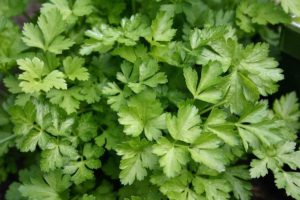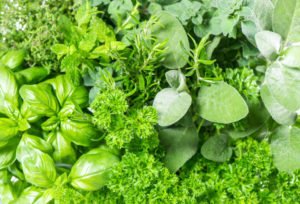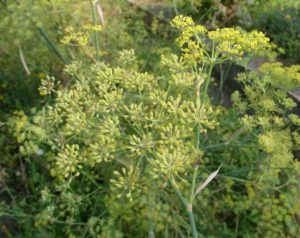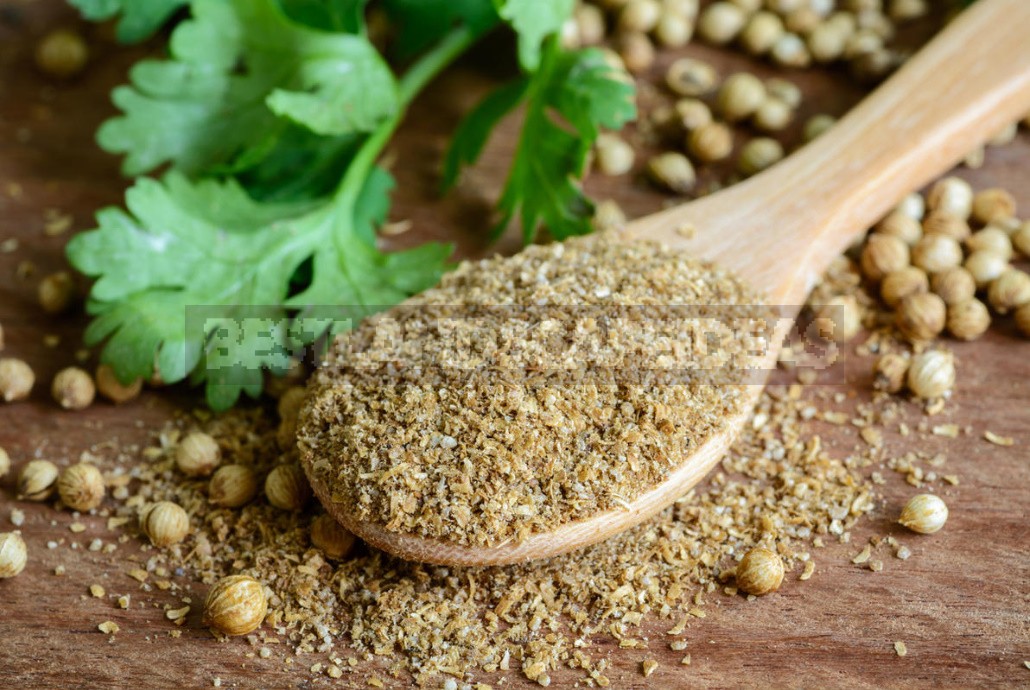
Coriander leaves are a traditional addition to many delicious dishes in Asia, India, and Latin America. However, the use of this plant is not limited to cooking. Traditionally, it is used to treat many diseases, including measles, chicken pox, urinary tract infections; to relieve pain in gastritis, stomach ulcers and flatulence.
Coriander is a plant known by the Latin name Coriandrum sativum. It belongs to the Umbrella family. It is valued not only for its specific taste, but also for its high content of vitamin C, provitamin A (beta-carotene, lutein), rutin, vitamins B1 and B2. Also, coriander contains potassium, iron, fatty acids, phytosterols, flavonols such as quercetin and kaempferol.
Leaves and seeds are used as a medicinal product. In cooking, young leaves are used in fresh and dried form, Mature seeds are used in the manufacture of bread, bakery and confectionery products, sausages, cheese, sauces and marinades.
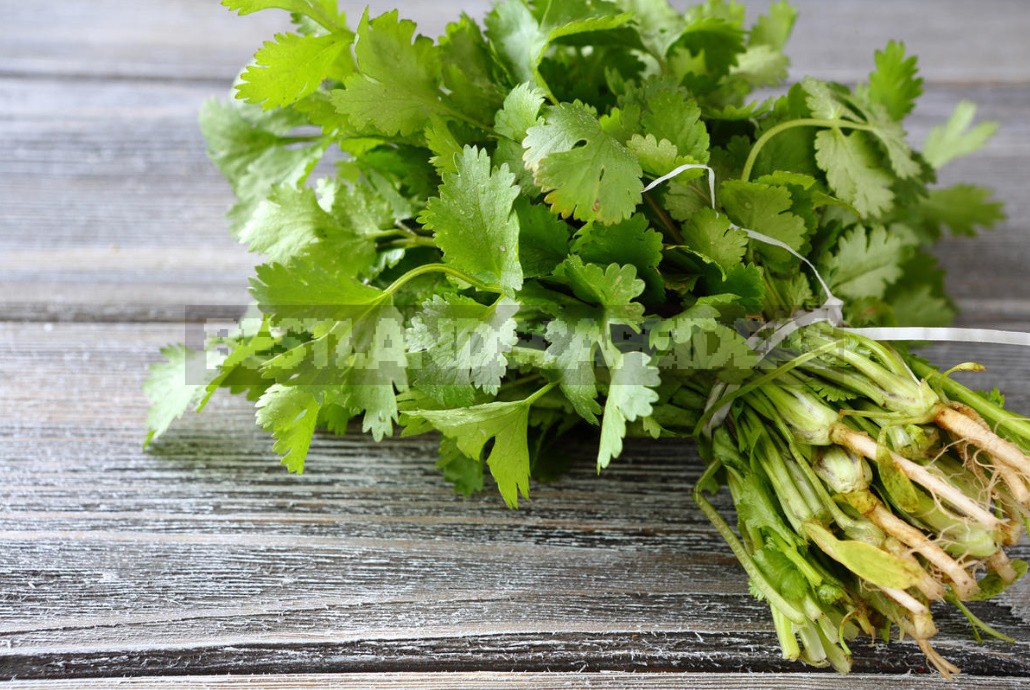
Coriander leaves, rich in antioxidants and vitamins, protect the heart and liver, help with diabetes and show antitumor activity. By acting against microbes, they can prevent food poisoning and infections, help manage diarrhea, and improve gastrointestinal function. Leaves contain more vitamins and antioxidants than seeds, but the latter have a higher content of minerals and phytosterols.
Coriander reduces oxidative stress in the body
As a result of daily metabolic processes, as well as when exposed to external toxins, our body produces reactive molecules called free radicals. They damage the body’s cells and cause chronic inflammation. When antioxidants, which are part of the immune system, can’t cope with damage, it leads to oxidative stress.
Constant oxidative stress causes premature aging and can cause many diseases, including diabetes, heart disease, and even cancer. Therefore, a diet rich in antioxidants helps to prolong youth and serves as a good means of preventing serious ailments.
Scientists ‘ studies of human skin cells under oxidative stress have shown that standardized coriander leaf extract reduces the rate of oxidation, increases the level of natural antioxidants in the body, and increases the activity of enzymes that break down toxic byproducts to harmless chemicals.
Coriander prevents atherosclerosis and diabetes
Coriander leaves help to get rid of atherosclerosis, diabetes and remove heavy metals from the body.Such studies were conducted in Saudi Arabia, Jordan, and Morocco. Scientists have proven that cilantro leaf extract reduces blood glucose, total cholesterol, low-density lipoprotein and triglyceride levels, thereby reducing the risk of developing atherosclerosis. At the same time, coriander leaf extract increases the level of high-density lipoproteins that help fight atherosclerosis.

Coriander helps to balance the level of lipids, having a beneficial effect on the liver, preventing damage to its cells and increasing the activity of antioxidant enzymes. Coriander leaves accelerate the elimination of heavy metals (lead and mercury) from the body and increase the effectiveness of antibiotics. Therefore, the use of coriander (in the form of greens in salads, juice or a cocktail with herbs) will certainly help the liver in its work and stimulate the elimination of toxins from the body.
Coriander seeds to treat high blood pressure and improve digestion
Several studies have found a positive effect of coriander seeds on the heart and blood vessels. So, in one study, it was proved that the seed extract prevented a heart attack; another study confirmed that it is able to lower blood pressure, increasing the output of urine and expanding blood vessels. Coriander seeds have also been found to reduce swelling and inflammation in patients with rheumatoid arthritis.
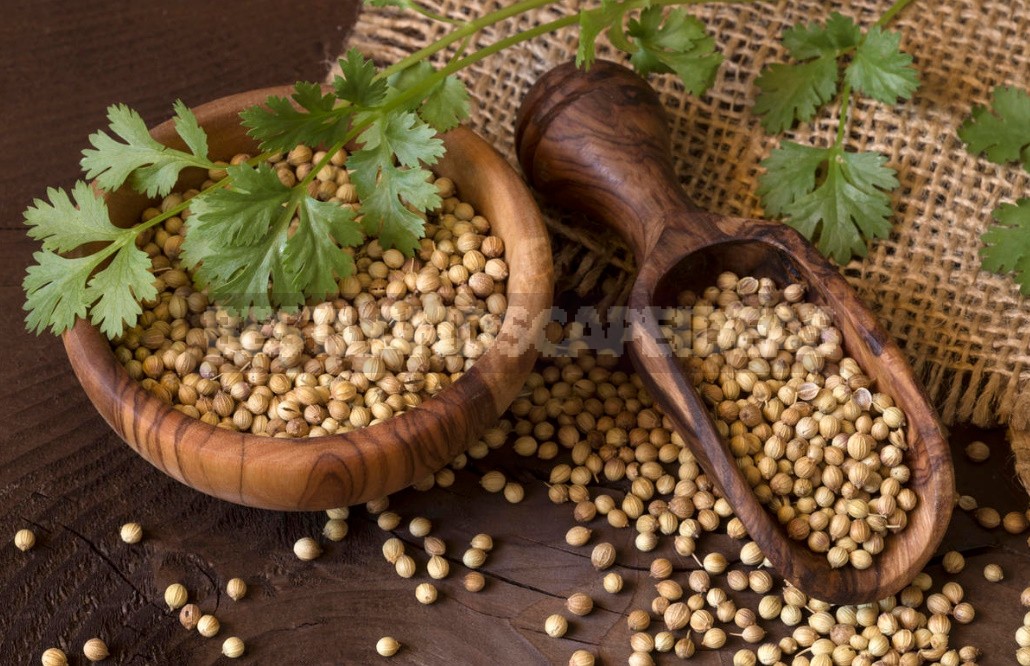
The traditional use of coriander as a means of relieving flatulence is well known and justified. Seed extract effectively helps food pass through the gastrointestinal tract faster. It successfully treats flatulence, dyspepsia, anorexia in complex therapy, helps to relieve diarrhea and abdominal spasms.
Coriander leaves have a similar effect when used in traditional diets or as a home remedy. For example, in India, finely chopped coriander or a spoonful of leaf juice is added to food to improve the digestion of heavy food.
Other useful properties of coriander
A recent study found that essential oil extracted from the coriander stem can kill the larvae of Aedes aegypti, a mosquito that spreads zika and yellow fever.
Adding cilantro to the diet, which has antimicrobial and antibacterial effects, can prevent food poisoning. Essential oil extracted from the leaves has a strong effect on pathogens that cause listeriosis, salmonellosis; it is effective in diseases caused by Staphylococcus aureus, Escherichia coli and Candida yeast.
Coriander relieves menstrual pain and increases breast milk production. Coriander seeds are used to treat urinary tract infections due to their antimicrobial and diuretic properties.
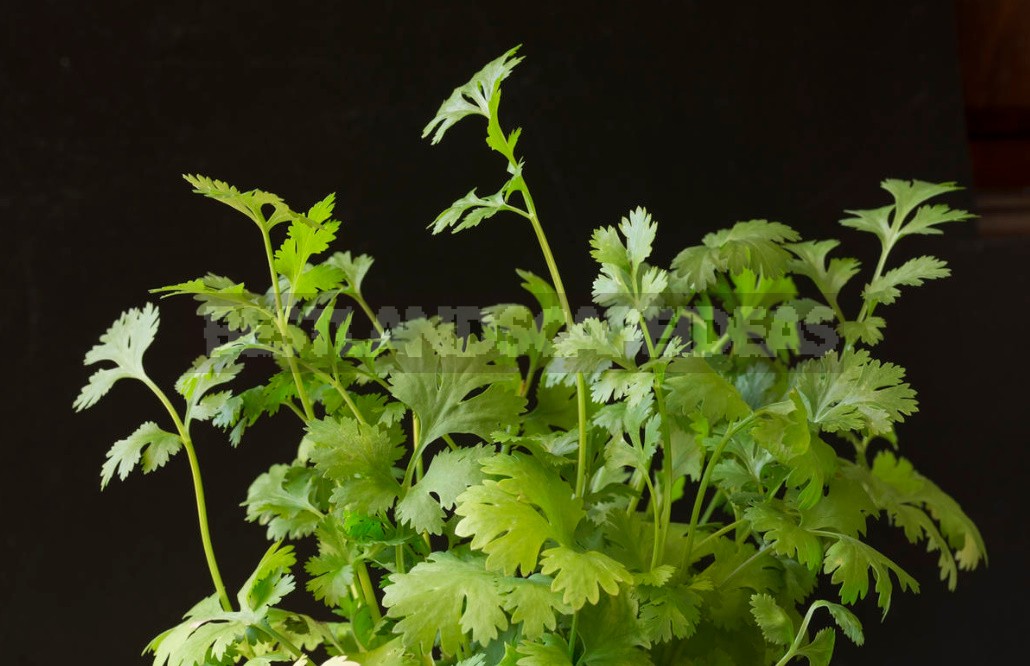
Thanks to a very large amount of provitamin A, coriander helps to maintain good vision in old age and prevent blindness at night, while a large amount of vitamin C reduces the risk of cataracts and age-related macular degeneration.
Ayurveda experts recommend using coriander juice to treat allergic reactions, skin rashes, itching, and inflammation (including insect bites). It is also believed that this plant is effective against hay fever and allergic rhinitis. The following recipes are used for this purpose:
- mix 1 Cup of crushed coriander leaves with 1/3 Cup of water, strain and apply the resulting pulp directly to the bite or place of inflammation 2 times a day;
- drink 2 tablespoons of coriander juice 3 times a day.
Studies have shown that cilantro can improve memory and help prevent neurodegenerative diseases (including Alzheimer’s disease). At the same time, you can always find effective combinations of coriander with other medicinal herbs and products that improve brain activity, for example, in a salad with nuts.
Coriander has been found to have anti-cancer activity
In laboratory studies, coriander leaf juice has shown anti-cancer properties due to chlorophyll. The plant’s seeds and root extract show antitumor activity against oral cancer, stomach cancer, and breast cancer. At the same time, coriander prevents DNA damage and migration of cancer cells, stimulating their death in the body.
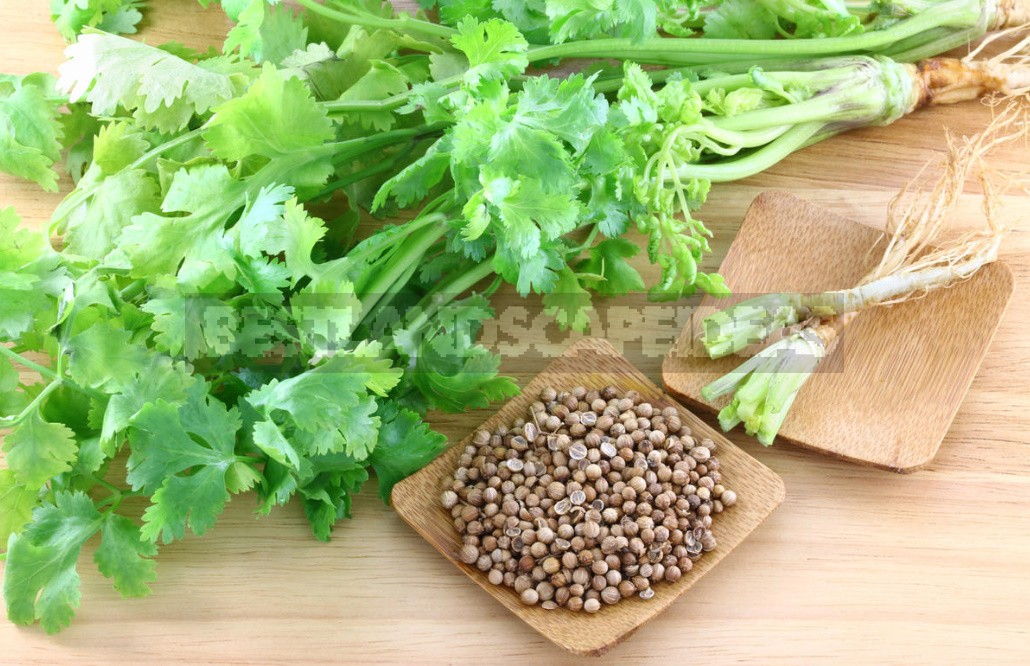
Further research will give a clearer idea of the mechanism of anti-cancer action of coriander. However, it will be possible to determine whether the use of this plant in normal dietary quantities can prevent or treat cancer only after large-scale clinical trials.
Contraindications to use
The main contraindication to the use of coriander is an allergic reaction to this plant. You should be careful when using coriander for those who have a tendency to thrombosis, blood clots.
